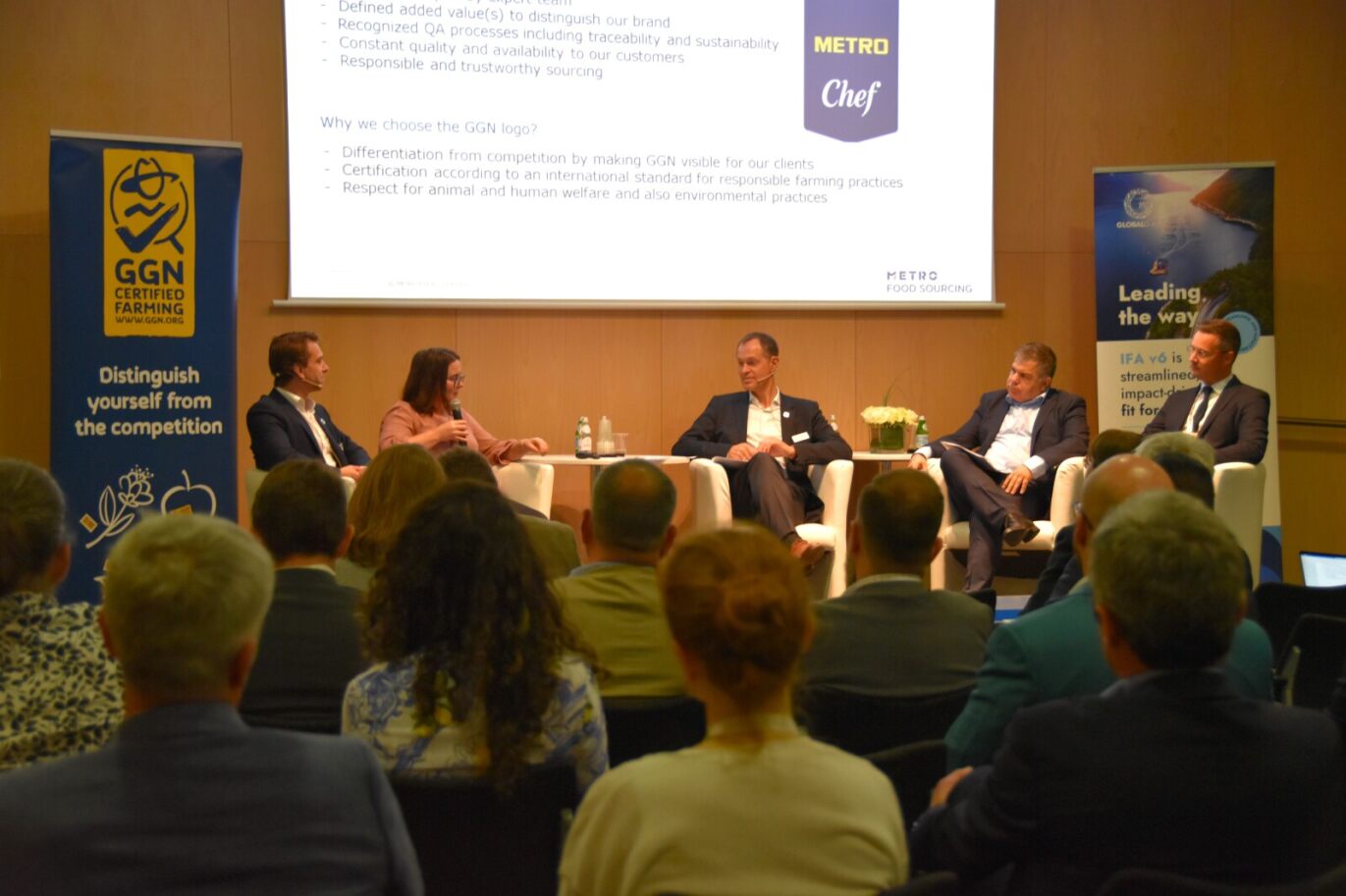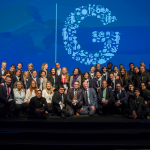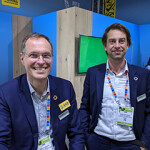GLOBALG.A.P. to host informative panel discussion on supply chain transparency at SEG
Sponsored

GLOBALG.A.P., the brand of smart farm assurance solutions, will be shining a spotlight on leading aquaculture trends in Europe, the European Union (E.U.), and beyond during a panel discussion at the 2024 Seafood Expo Global, taking place in Barcelona, Spain this month from 23 to 25 April.
Eurofish Magazine Director Marco Frederiksen will be moderating the discussion and will be joined by representatives from both the producer and processor/ trade sectors, including Carlos Tavares Ferreira, the sustainability and quality director at Stolt Sea Farm, and Teresa Fernandez, the CSR and sustainability senior manager for seafood and added value for Europe at Hilton Foods. Audun Lem, the deputy director of the Fisheries and Aquaculture Division and secretary of the FAO Committee on Fisheries (COFI), and Marine Conservation Society Aquaculture Program Manager Dawn Purchase will also be partaking in the discourse, which comes just ahead of the June’s European Union elections. GLOBALG.A.P. will be represented by aquaculture key account manager, Remko Oosterveld.
“Those who are able to join us for this panel discussion will get a glimpse into the evolving landscape of legislation and responsible aquaculture,” GLOBALG.A.P.’s Leonie Fischer noted. “The aim is to engage participants in a comprehensive exploration of the current challenges and solutions on the topic of supply chain legislation and the transparency of responsible aquaculture production.”
In addition to delving into current supply chain legislation and regulations, the GlobalG.A.P. c/o FoodPLUS GmbH-sponsored panel will also consider the role that voluntary certification solutions, cross-sector collaborations, and data-driven traceability systems play when it comes to responsible aquaculture/farming practices.
Many of the aquaculture industry’s most pressing questions will be addressed during the discussion, Fischer said, including:
· What are the current trends and developments, particularly in Europe?
· What impact do current E.U. directives have on European operations in terms of
· What role does the traceability of compound feed raw materials – such as soy,
· What contribution can traceability systems and data-based management make to
· What obstacles still stand in the way of responsible farming in Europe and beyond,
With a mission to foster “global adoption of safer and more responsible farming practices,” GLOBALG.A.P. provides “industry-leading, cost-efficient, and value-adding assurance and benchmarking solutions” for aquaculture and other industries. The organization’s smart farm assurance solutions focus on six key impact areas: food safety, environmental responsibility, workers’ well-being, animal welfare, supply chain traceability, and capacity building.
Among GLOBALG.A.P.’s flagship standards is its Integrated Farm Assurance (IFA) for aquaculture, which offers producers “clarity on international requirements for responsible farming and facilitates a long-term holistic approach to primary production operations,” the organization said.
“IFA can be applied to any finfish, crustacean, mollusk, and seaweed (macroalgae) species,” GLOBALG.A.P. added. “The standard has consistently achieved Global Food Safety Initiative (GFSI) and Global Seafood Sustainability Initiative (GSSI) recognition, and is aligned with the four pillars of the Food and Agriculture Organization (FAO) Technical Guidelines on Aquaculture Certification as well as the World Organization for Animal Health Aquatic Animal Health Code. Operational for over 20 years, IFA is tried, tested, and trusted around the world – with over 2.5 million metric tons of farmed aquactic species produced in IFA-certified production processes annually.”
In its sixth version, IFA v6 addresses all stages of production – from hatchery to postharvest activities – and can be applied to a wide range of production systems, including net enclosures, flow-through systems, closed recirculation systems, pond farming, and mollusk/seaweed (microalgae) substrate systems. An accredited and independent third-party certification body annually audits producers to make sure they are in compliance with IFA requirements – successful completion of this process results in a certificate valid for one year, GLOBALG.A.P. explained.
“IFA is a global standard for responsible aquaculture practices at all stages of primary production. It is built on a holistic approach that covers the key topics of food safety, the environment (including biodiversity), animal welfare, workers’ well-being, production processes, and traceability,” the organization said.
In December 2023, the Colombian National Technical Working Group (NTWG) published the first national interpretation guideline for IFA v6 for aquaculture – a development that the group hopes will help inspire “Colombian aquaculture producers to implement the standard’s requirements and obtain GLOBALG.A.P. certification.”
More information about GLOBALG.A.P.’s IFA v6 standard can be found on the organization’s website.
The GlobalG.A.P. c/o FoodPLUS GmbH-sponsored panel will be free and open to all attendees, exhibitors, and speakers at Seafood Expo Global from 2:00 p.m. to 2:45 p.m. in Conference Center 5, Conference Room CC 5.2, at Fira de Barcelona’s Gran Via venue on 23 April.
Registration can be done on the organization’s website.








